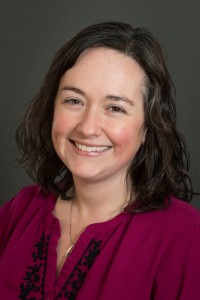New Civic Engagement and Service-Learning Coordinator Engages Students and Community Partners
In addition to being successful, Northern Essex Community College wants its students to be good citizens. Janel D’Agata-Lynch, NECC’s first Civic Engagement and Service- Learning Coordinator, is helping with this mission.
D’Agata-Lynch was appointed to this part-time, pilot position to assist NECC in “preparing students for engaged citizenship”. This follows the recommendation of the Massachusetts Board of Higher Education which voted two years ago to “Include civic learning and engagement as an expected learning outcome in public higher education”.
Since then, Northern Essex has been actively working with interested faculty to incorporate a civic or service-learning component into their curricula and connect them with community partners. Partners have included food pantries, homeless shelters, assisted living centers, Boys and Girls Clubs, local schools, and a number of other nonprofits.
While NECC students can connect with the community through many volunteer opportunities, service-learning is a classroom experience.
D’Agata-Lynch identifies community partners and makes sure NECC student involvement is meeting the needs of the partner and that the partner’s needs are tied to the course objectives.
For example, English as a Second Language students made several visits to an area assisted living facility where they interviewed residents with questions they had developed to help residents tell their personal histories.
“This was mutually beneficial,” said D’Agata-Lynch. “The students worked on improving their English speaking skills while developing their note-taking and interview skills. The residents benefitted from sharing their personal histories.” In addition, personal connections were made, and the residents offered advice to the students about life and pursuing their goals.
Northern Essex students who participate in service opportunities can expect real-world experience that connects their classroom work with a community need; an opportunity for career exploration and networking; improved communication, critical thinking, team building and problem solving skills; a better awareness of community resources and needs; skills and resources to be a successful college student; confidence to address community needs and the opportunity to make a positive impact.
D’Agata-Lynch notes that both volunteerism and service-learning are important when applying and interviewing for jobs. Employers like to hire well-rounded citizens.
For information on civic engagement and service learning, contact D’Agata-Lynch at jdagatalynch@necc.mass.edu or visit the service learning website.








